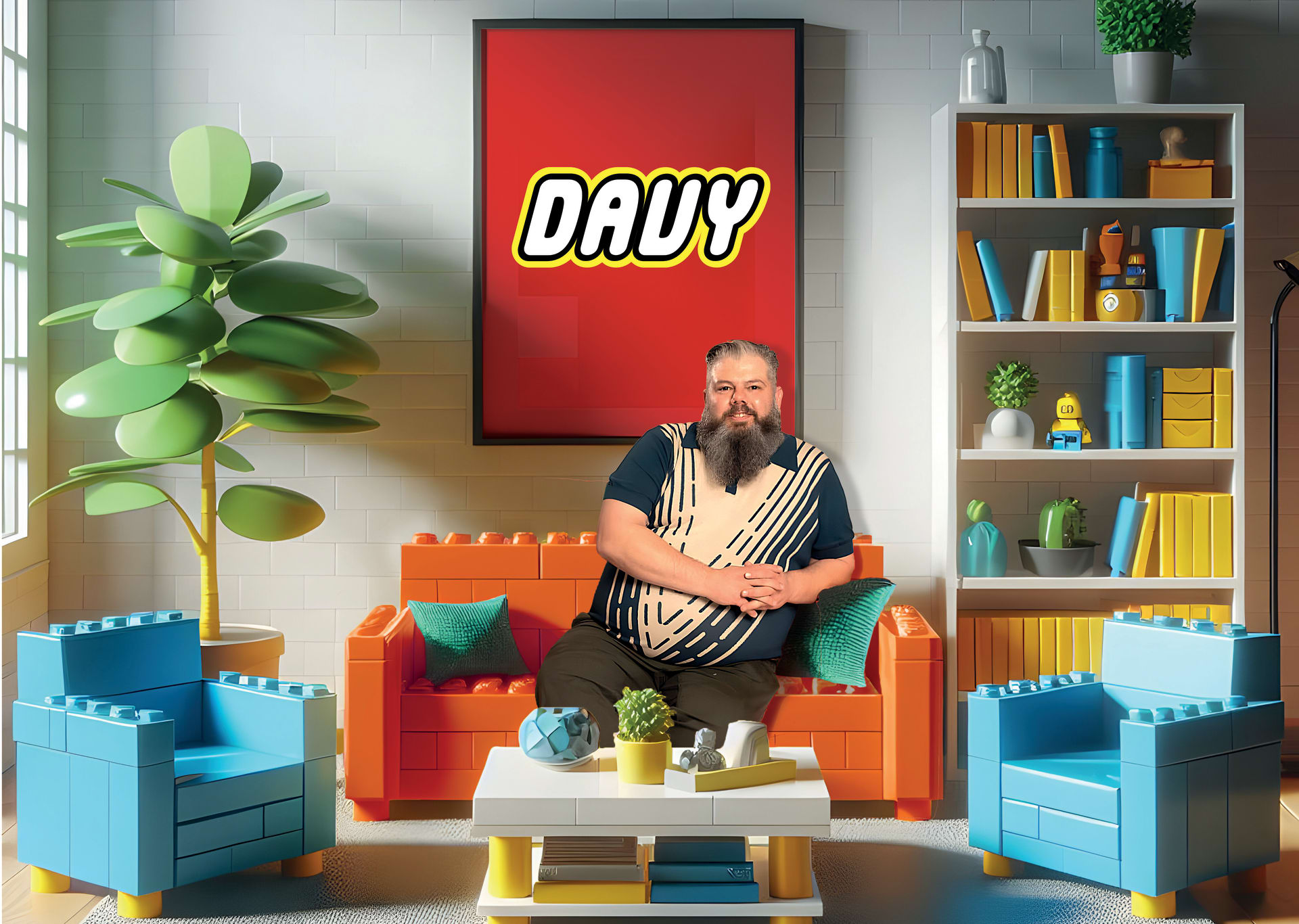He wanted to learn more about cloud-native and he got that opportunity at ITQ. Currently Davy van de Laar is executing a large project at the Dutch government. What did his first year at ITQ look like? And what exactly about that other passion: Lego?

Davy: Virtualization & cloud-native consultant and Lego fan.
'I see a lot of similarities between cloud-native and Lego.'
Why did you choose ITQ?
I had been working a lot on sofware-defined data centers and infrastructure as code, and was working as a virtual data center specialist. But I wanted to focus more on cloud-native. My then employer was willing to offer me that space, only there were really no opportunities within that company's customer base. I already knew the name ITQ, so that's when I contacted them.
And how did that contact go?
From the very first conversation, everything was very open and I found that very pleasant. I found it very difficult to leave my previous employer, because I was not necessarily dissatisfied there. ITQ understood that and never insisted. I was allowed to talk to several people from the organization, and they indicated to think carefully before I made a decision. The contact immediately gave me a family feeling, that the organization and people are behind you as a person.
Were you able to get started right away?
ITQ already had a project for me, with the central government. This required an extensive screening first. In the meantime, several requests came in for jobs with virtual data centers. So I have a lot of experience with that, but I had indicated beforehand that I wanted to immerse myself in cloud-native and that was respected, and I appreciate that enormously.
What does your work week look like?
I currently work 36 hours in a central government department and then I have 4 hours per week to figure things out, write a blog and so on. Of the 5 days, I work one on location, the rest from home. We always start with a stand-up with the team, in which I sit with some colleagues from the central government and one from ITQ. Our team is part of a larger team that includes more ITQ people and I talk to them regularly via MS. Teams.
Do you also come to the Beverwijk office?
All colleagues work from home a lot, and every two weeks we meet at the office. It is not mandatory, but it is appreciated if you attend once a month. The turnout is always high, even though people have to come from all over the Netherlands. On such a day, the social aspect is really paramount. We consult with the entire cloud-native team, everyone is of course at a different client, and exchange knowledge and experience.
What kind of organization is ITQ?
Everyone is very approachable. When you come in to ITQ you have a welcome dinner after a few months. That's really very approachable, they ask about your experiences with onboarding and what you think could be improved. You are listened to carefully anyway. For example, there are regular sessions where the MT goes through the roadmap with us and where you can contribute your own points. But that's not necessary; many people enjoy just doing their job.
Is there anything else being organized?
There are regular internal events. For example ITQonnects, when all colleagues come together for a weekend. Then you meet ITQ people you didn't know yet. We are all part of the family and that's how it feels to me. Beforehand, I thought, 'I don't know if that suits me, I don't need to lay it on so thick.' But the social feeling is really there. Technical people who also want to share something together. That feels like the family of ITQ, that they are really behind you.
'It provides a piece of balance, something I can put my mind to. And it's a form of creativity that I also see reflected in my work: connecting elements, a very dynamic, open-source way of working.'
Davy van der Laar Virtualization Consultant at ITQ

'The contact immediately gave me a family feeling, that the organization and people are behind you as a person.'
Are there other things that appeal to you at ITQ?
In the IT industry it is quite difficult to find diversity in work and people, and to talk about our business with like-minded people. Within ITQ, this is very much present. There is a high level of knowledge in VMware and CNCF, and you can become a vExpert yourself. To do so, you have to build up credits, for example by visiting forums and sharing your knowledge there, or by writing blogs. You don't have to, but you can. ITQ will look at the possibilities and your growth path with you.
Tell me, how did your passion for Lego begin?
My friend Linda and I watched a lot of Lego Masters Australia and USA during corona. Then we decided to buy a set ourselves. First a small set, but soon some bigger ones. I also started designing elements myself in Stud.io. Currently I'm building a city in the attic, with real lights in the houses, and my office and computer room are full as well. Recently I modified the Haunted House, because I wanted to place it on a hill. That's tricky, because you can unfold the house. Then I bought additional parts. The next step is installing lights.
What appeals to you so much about lego?
It provides a piece of balance, something I can put my heart into. And it's a form of creativity that I also see in my work: connecting elements, a very dynamic, open-source way of working. I have solution A, but I actually like B better. How can we work toward B? Or you try to find things that are the same, to reapply or reuse. I do that in my work, but I also see it in Lego.
Finally, how do you see your future at ITQ?
First of all, of course I want to continue to develop in cloud-native. My assignment with the central government is a great learning experience and I have also obtained several certifications. I also want to develop in presentation, and also in how to deal with certain processes and automation in a human way. I notice that the big picture is connected, both in Lego and in my work. I'm still in engineering a lot now, but would like to move more in that direction: less on the details and more "high over" coming up with the solution.
It provides a piece of balance, something I can put my heart into. And it's a form of creativity that I also see in my work: connecting elements, a very dynamic, open-source way of working. I have solution A, but I actually like B better. How can we work toward B? Or you try to find things that are the same, to reapply or reuse. I do that in my work, but I also see it in Lego.
We like passionate people!
At ITQ you get the space and support to develop the way you want. So that you can organize your work in a way that suits you.

